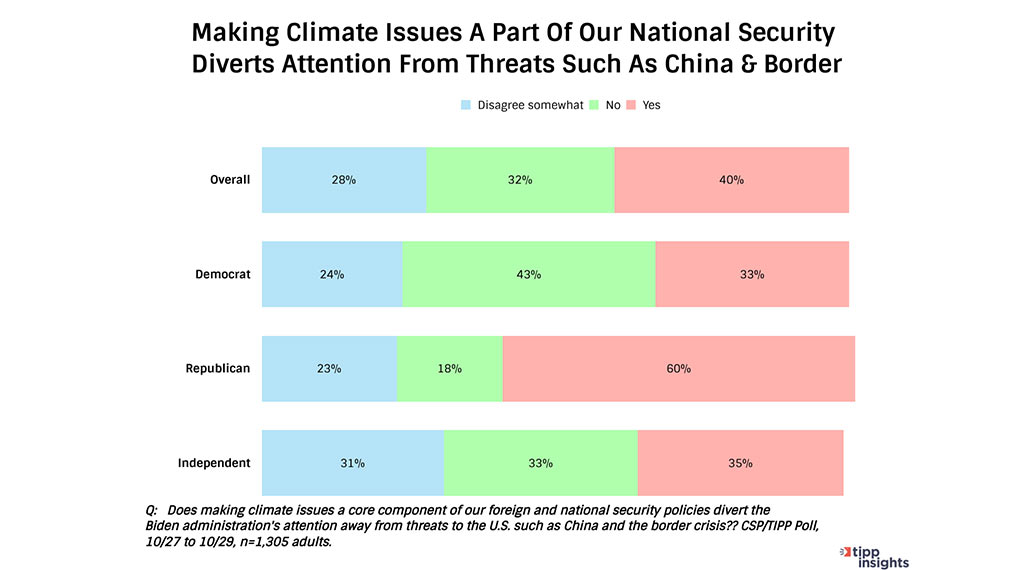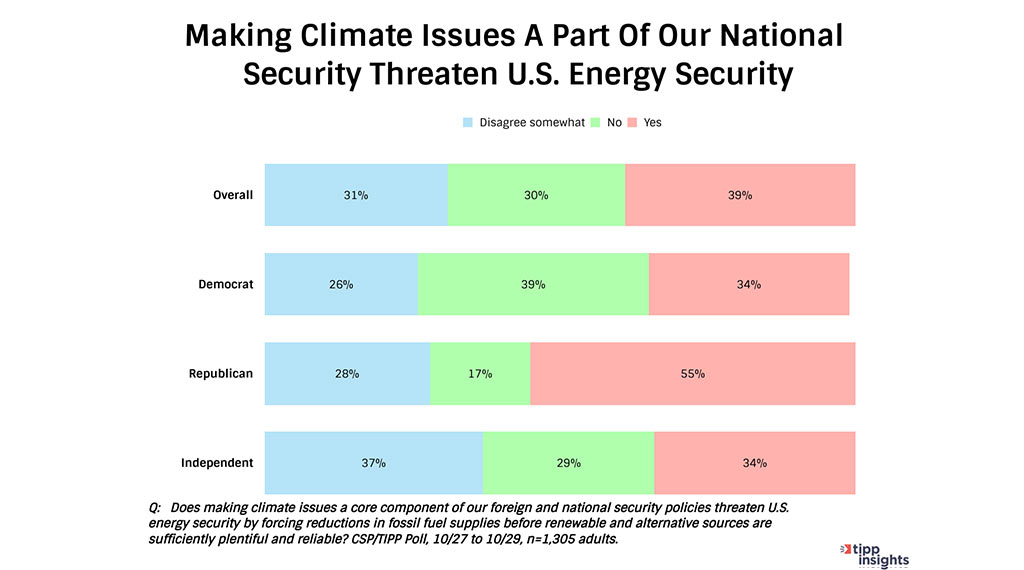President Biden wants climate change as part of national security, but what do Americans think?
Editor’s note: The Center for Security Policy gratefully acknowledges its collaboration with tippinsights on the simultaneous and exclusive release of this important story.

The Biden administration recently released a series of reports that “prioritized addressing the climate crisis both at home and as a core element of our national security and foreign policy,” a significant shift in U.S. policy. Recent polling by TIPP provides some timely insights into the views of the American people on climate change as a national security issue, which indicate somewhat more nuanced views than the Biden administration’s position. While a clear majority of those polled expressed concerns about the ramifications of climate change for our national security, Americans also appear to consider climate one threat among the many that we face, and believe that climate security needs to be balanced with other issues, such as energy security.
In response to the first TIPP query, “To what extent do you agree or disagree that addressing climate change should be a core component of our national security policy?”, while almost 60% of Americans over all agree strongly or somewhat, this response breaks down on party lines. More than half of Democrats surveyed agreed strongly, and an additional 33% agreed somewhat for a clear majority. But only 35% of Republicans share these views, and perhaps more significantly only 50% of Independents concur, suggesting this issue does not have overwhelming support across the political spectrum.

When the question is posed in terms of other threats, notably China and the crisis on the southern border, responses shift significantly. Overall, 40% of Americas are concerned the Biden administration’s attention might be diverted from these threats by a disproportionate focus on climate, compared to 32% who are not. Again, there is a clear partisan divide with only 33% of Democrats sharing this concern compared to 60% of Republicans, while Independents are more evenly divided.

Finally, the third TIPP question addressed concerns about a potentially precipitous rush to transition away from fossil fuels in the name of climate “before renewable and alternative sources of energy are sufficiently plentiful and reliable.” Overall, 39% of respondents replied in the affirmative, while only 30% were not concerned. And while there was a partisan divide it was narrower than for the previous two questions, with 34% of Democrats concerned about this issue, while 39% were not. For Republicans, 55% are concerned with only 16% not concerned, and a plurality of Independents (34%) shared this concern, versus 29% who did not.

The results of the TIPP poll suggest that a new debate over the U.S. approach to climate is in order, one in which it is possible to see climate as one element to be considered as we consider America’s national security architecture, not the prime directive that trumps all other considerations. Such a realistic approach might have the added benefit of prioritizing achievable climate goals, and recognizing the leading role the United States has played in reducing emissions in recent years.
Last week, the world was treated to the disorderly spectacle of the COP26 conference on climate issues grinding to an impasse over last-minute objections from India and China to references to coal in the final communique. The disconnect between the idealistic aspirations on display in Scotland and the grim reality faced by Asian countries in the grips of a severe energy crisis was clearly revealed, suggesting a more successful approach may be to find the middle road that the TIPP polling indicates is favored by most Americans.
- When David Met Lisa - December 20, 2021
- Why the United States, not China, needs to shape Middle East policy - December 20, 2021
- Victoria Coates on the confusion in Natanz - December 10, 2021
